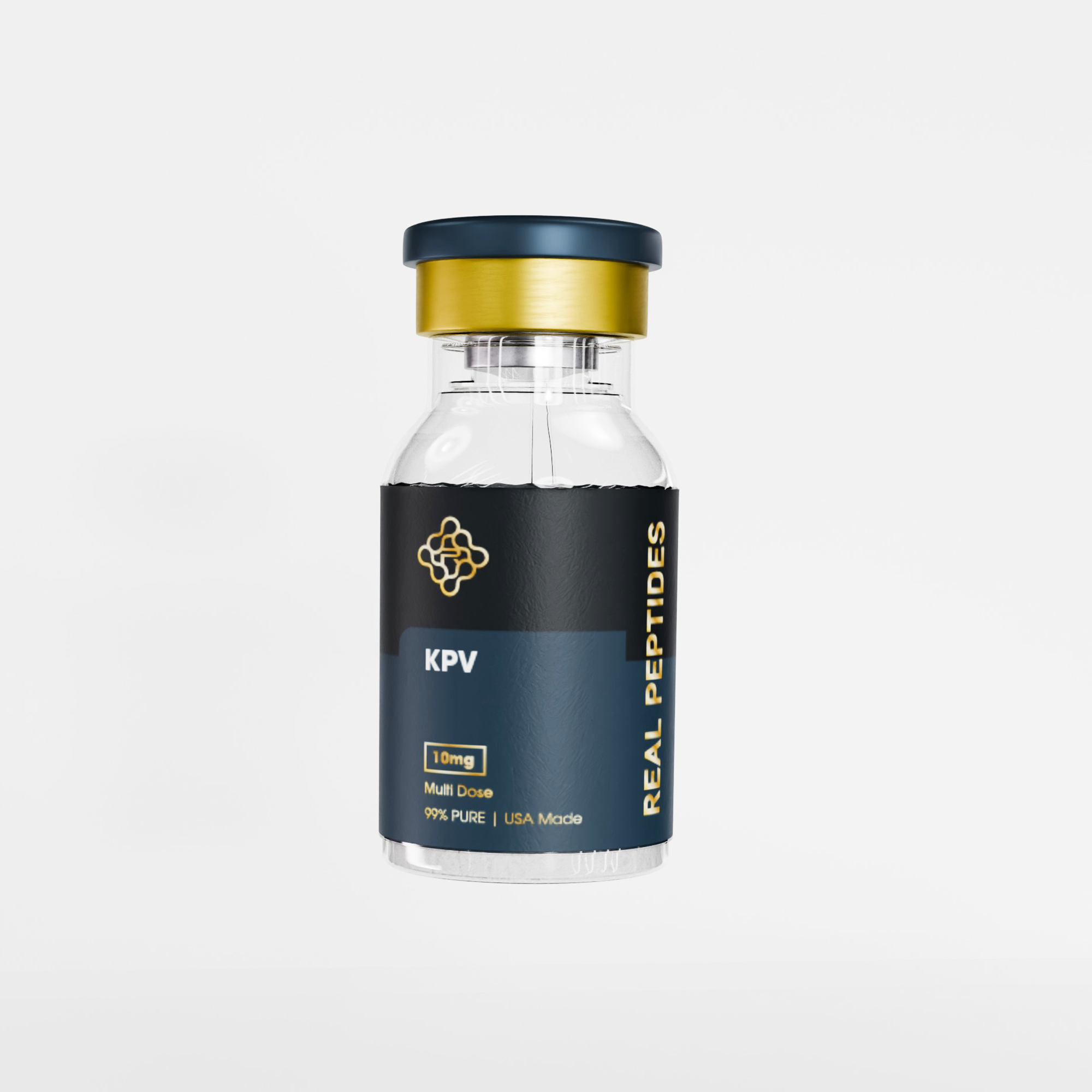
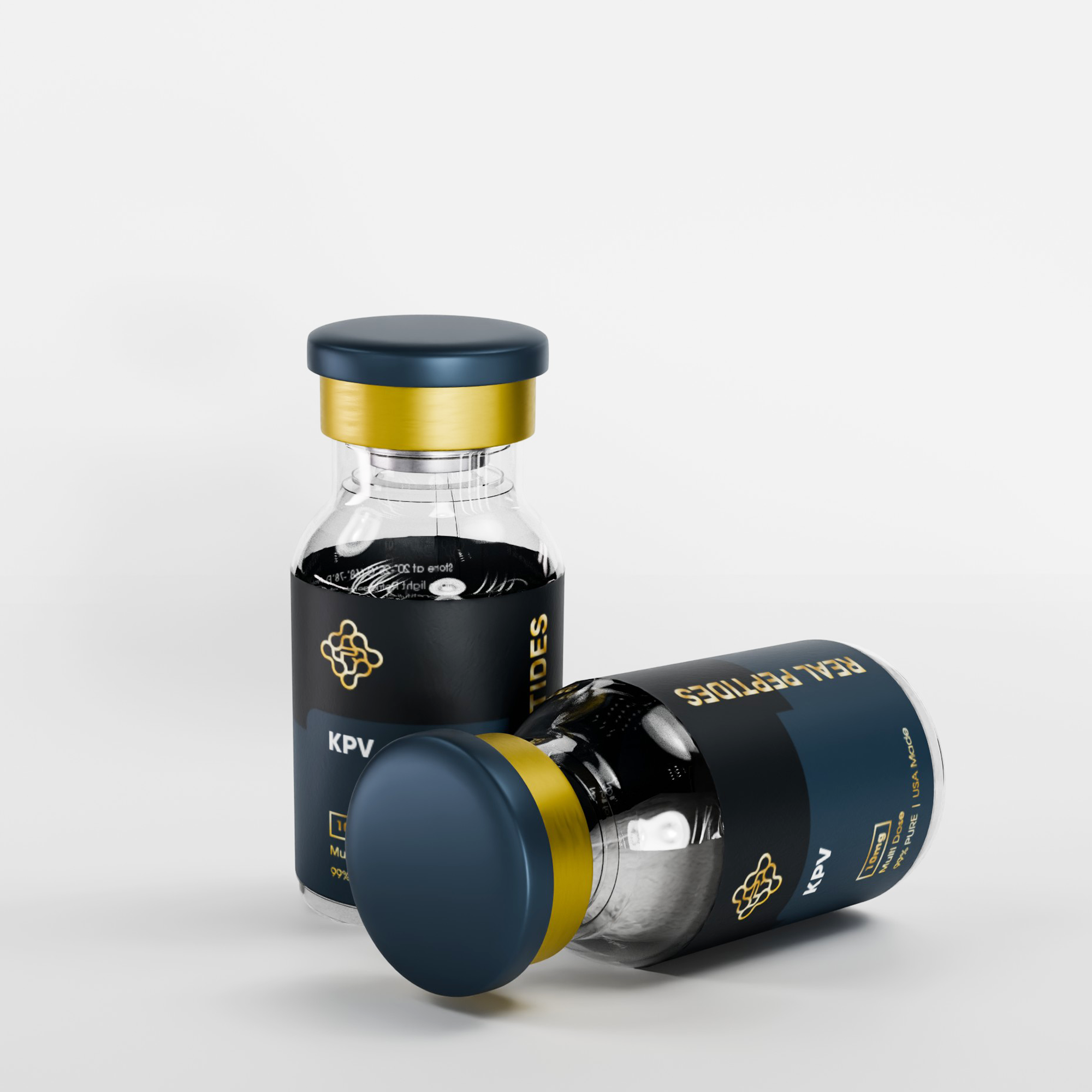

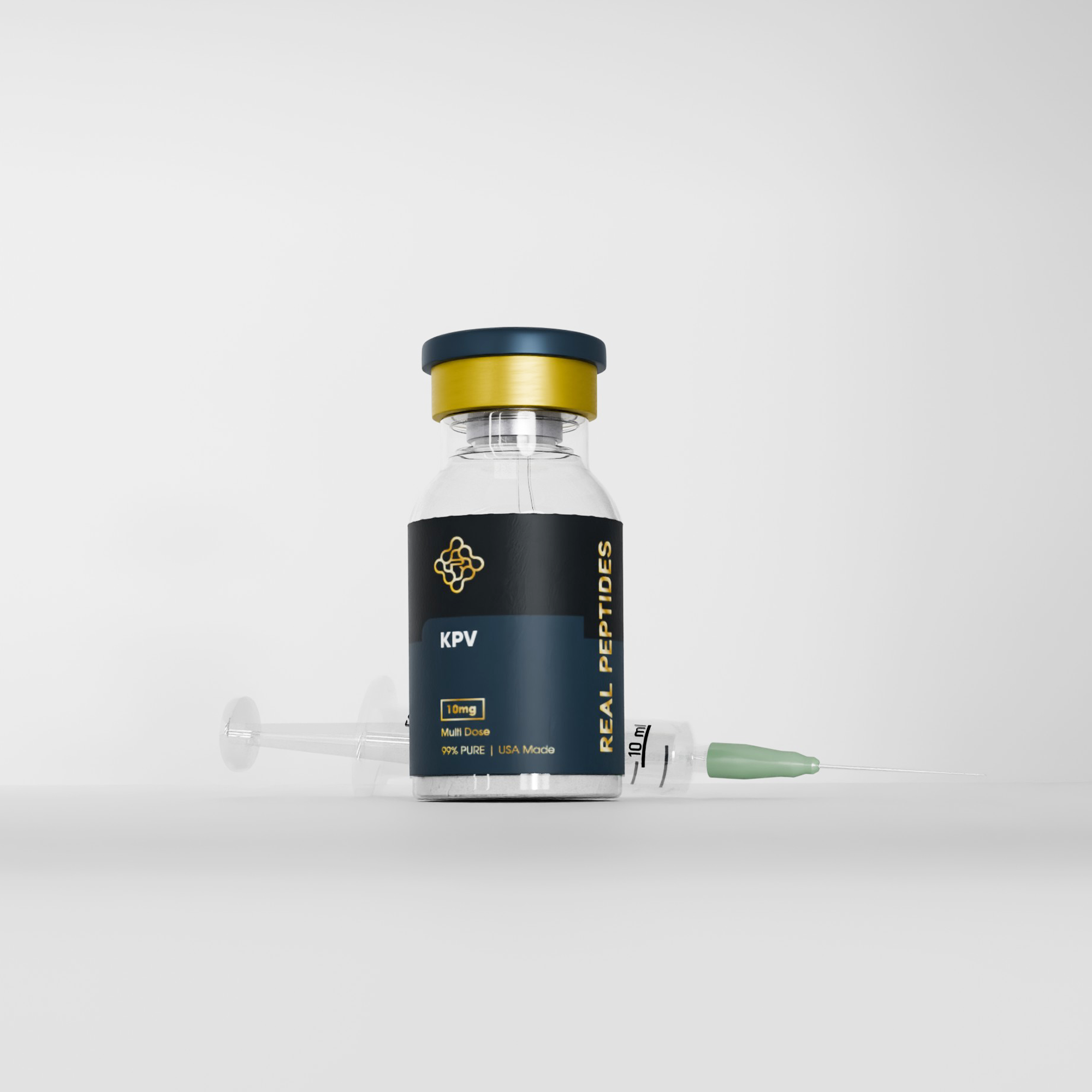
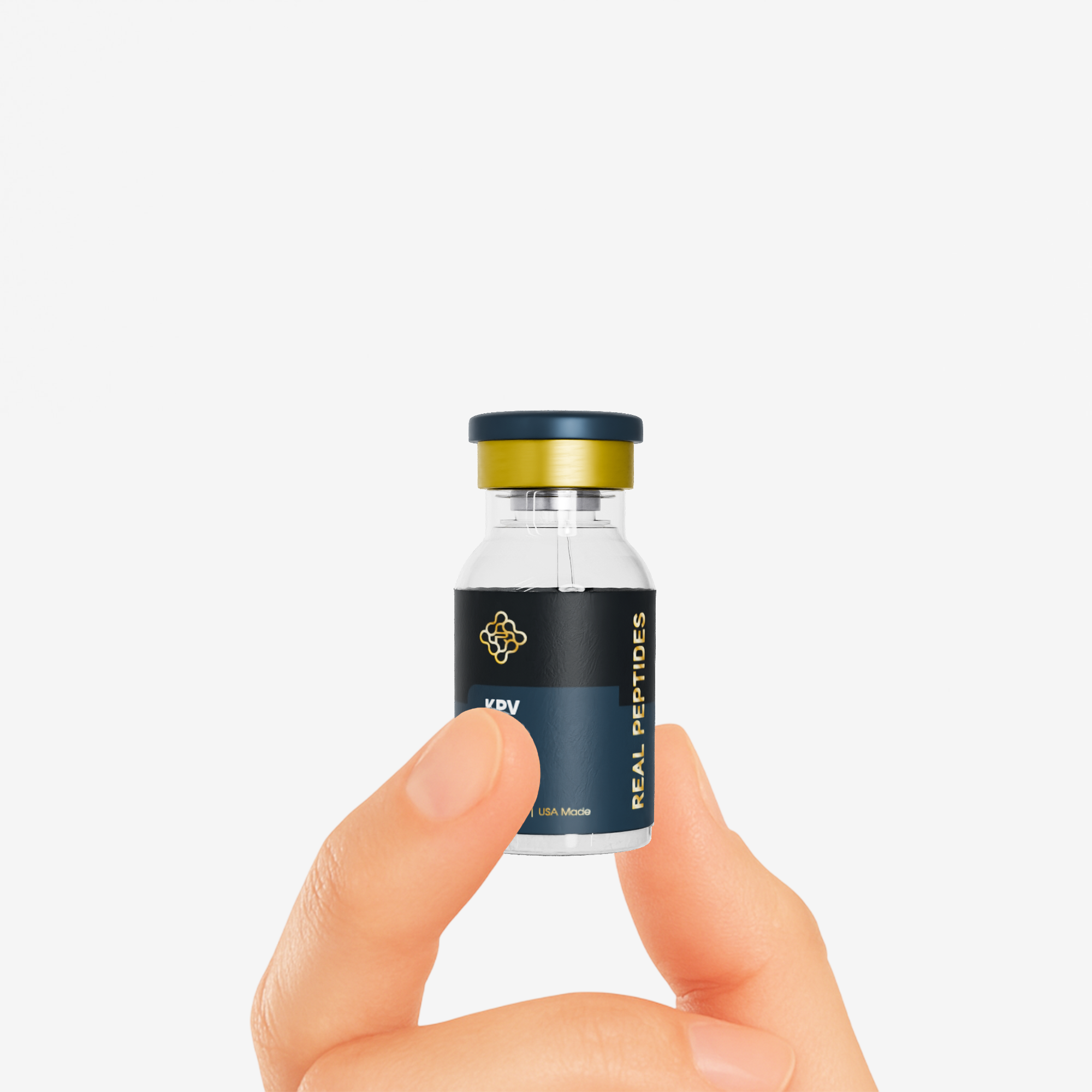
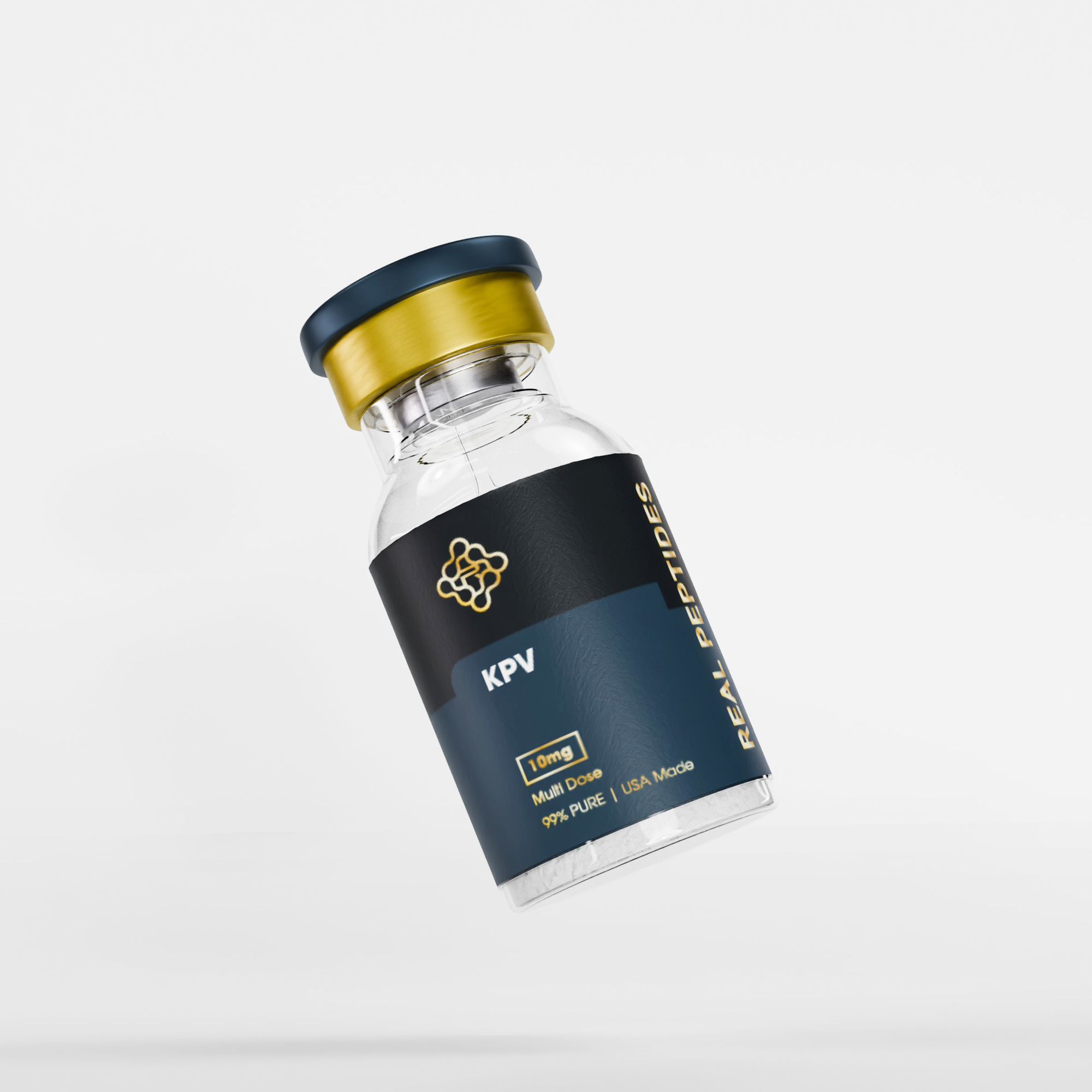
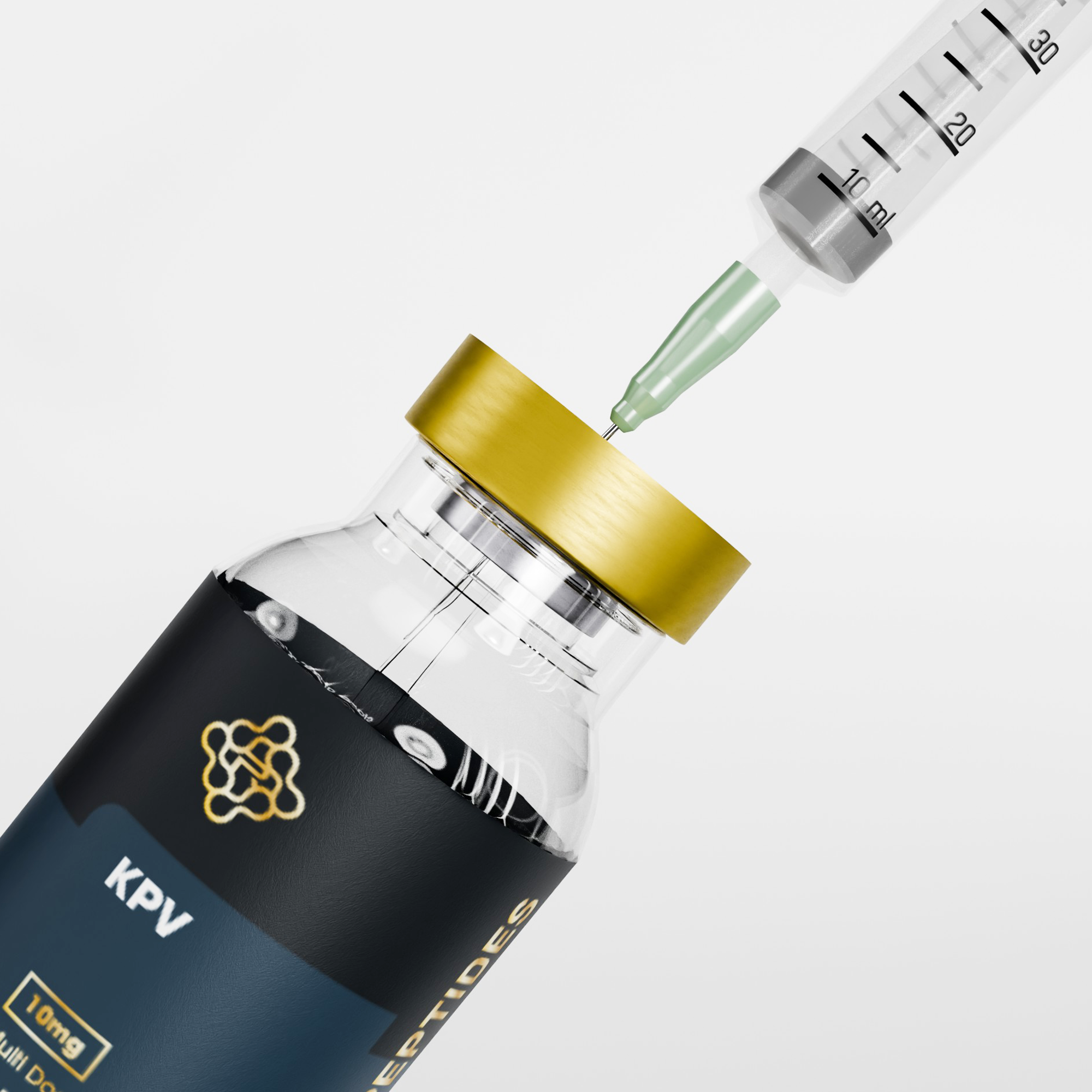
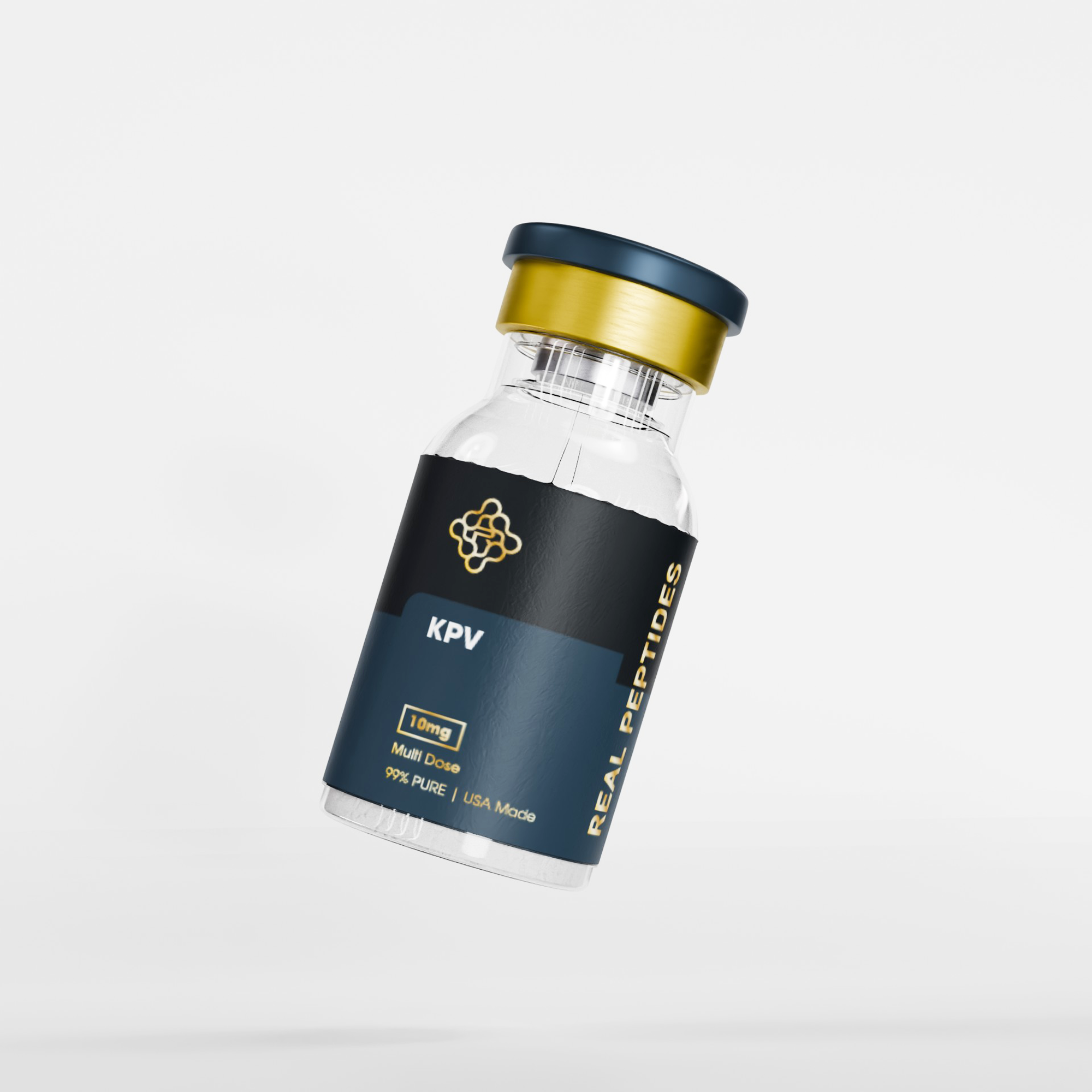
In Stock, Ready to Ship!
$85.00
99% Pure | USA Made | Multi Dose KPV peptide (Lys-Pro-Val) is a naturally derived tripeptide used to study anti-inflammatory and tissue-repair pathways in preclinical models. In macrophage, keratinocyte, and ex vivo skin assays, KPV modulates cytokine release, accelerates wound closure, and supports barrier recovery. Each 10 mg vial is USA-made, HPLC-verified to ≥ 99% purity, endotoxin-screened (< 0.1 EU/mg), and ideal for your in vitro and in vivo research.

Peptides are not ready to use. Must purchase BAC water for reconstitution.
KPV peptide downregulates IL-1β and TNF-α in macrophage assays, modeling key kpv peptide benefits in inflammation-resolution research.
In scratch assays, KPV enhances keratinocyte migration—reducing gap closure time by up to 50%.
Ex vivo skin explants treated with KPV show faster transepidermal water-loss recovery, aiding barrier-integrity studies.
KPV boosts superoxide dismutase (SOD) and catalase in oxidative-stress models, extending cellular resilience.
In neural-glial co-cultures, KPV attenuates microglial activation, offering a tool for CNS inflammation research.
Reconstitute KPV in Sterile Water for Injection (SWFI) or Bacteriostatic Water (BAC). Store lyophilized at –20 °C; keep reconstituted solution at 2–8 °C for up to 7 days to maintain ≥ 98% integrity.

KPV peptide (Lys-Pro-Val) is a tripeptide fragment derived from α-melanocyte-stimulating hormone, prized in research for its cell-level anti-inflammatory and tissue-repair actions. In controlled lab settings—covering macrophage, keratinocyte, endothelial, and neural-glial models—KPV probes how cytokines, cell migration, and barrier function interact during inflammation and healing.
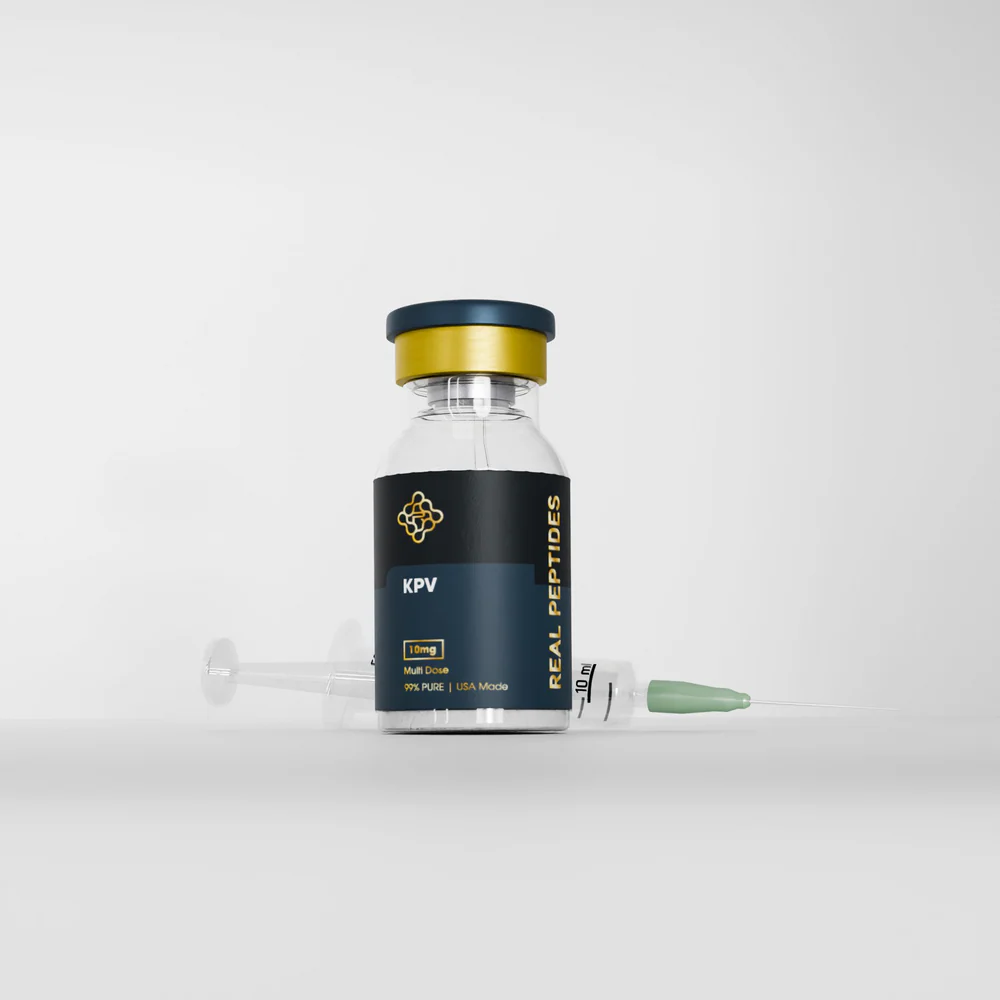
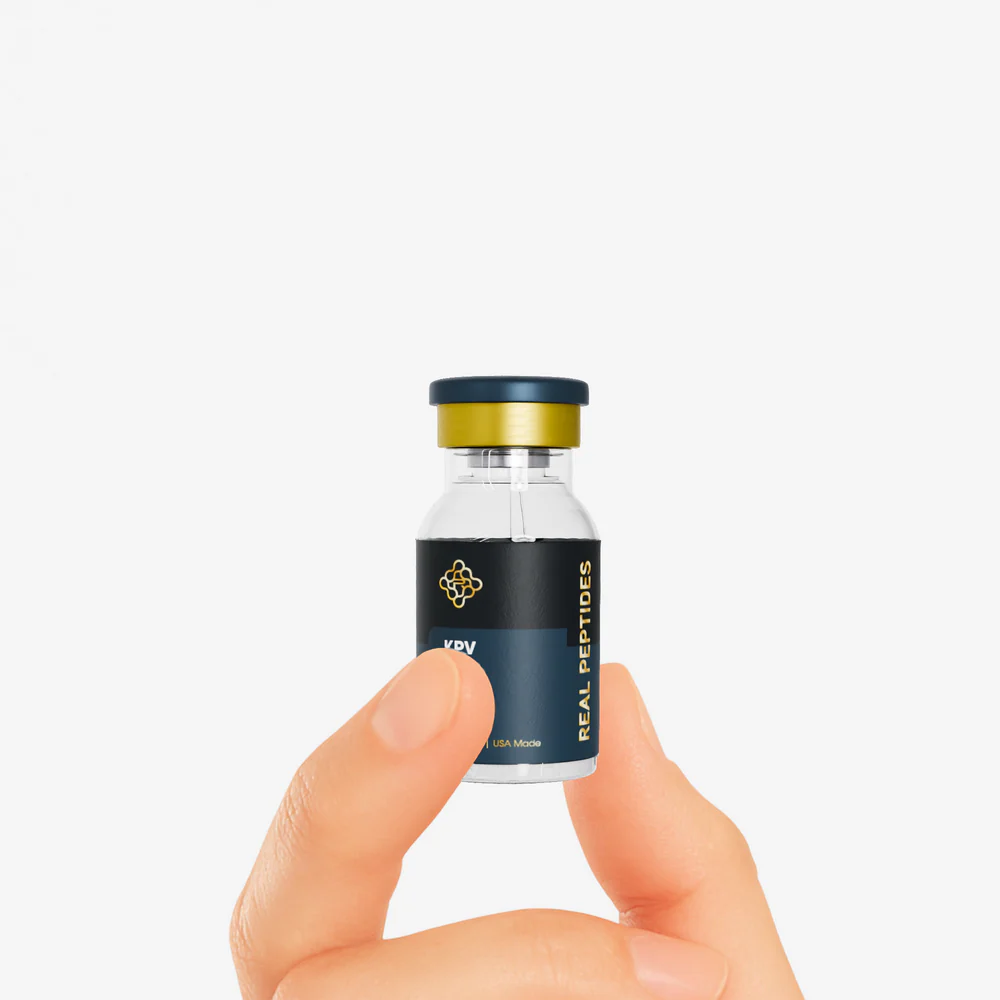
Researchers choose KPV peptides when they need a high-precision tool to model inflammation resolution and barrier restoration. Its rapid cellular uptake and clear dose–response make it ideal for scratch assays, cytokine profiling, and barrier studies. Manufactured under ISO-certified conditions and verified to ≥ 99% purity—each batch is endotoxin-screened (< 0.1 EU/mg)—ensuring consistent, reproducible data for KPV peptide research.
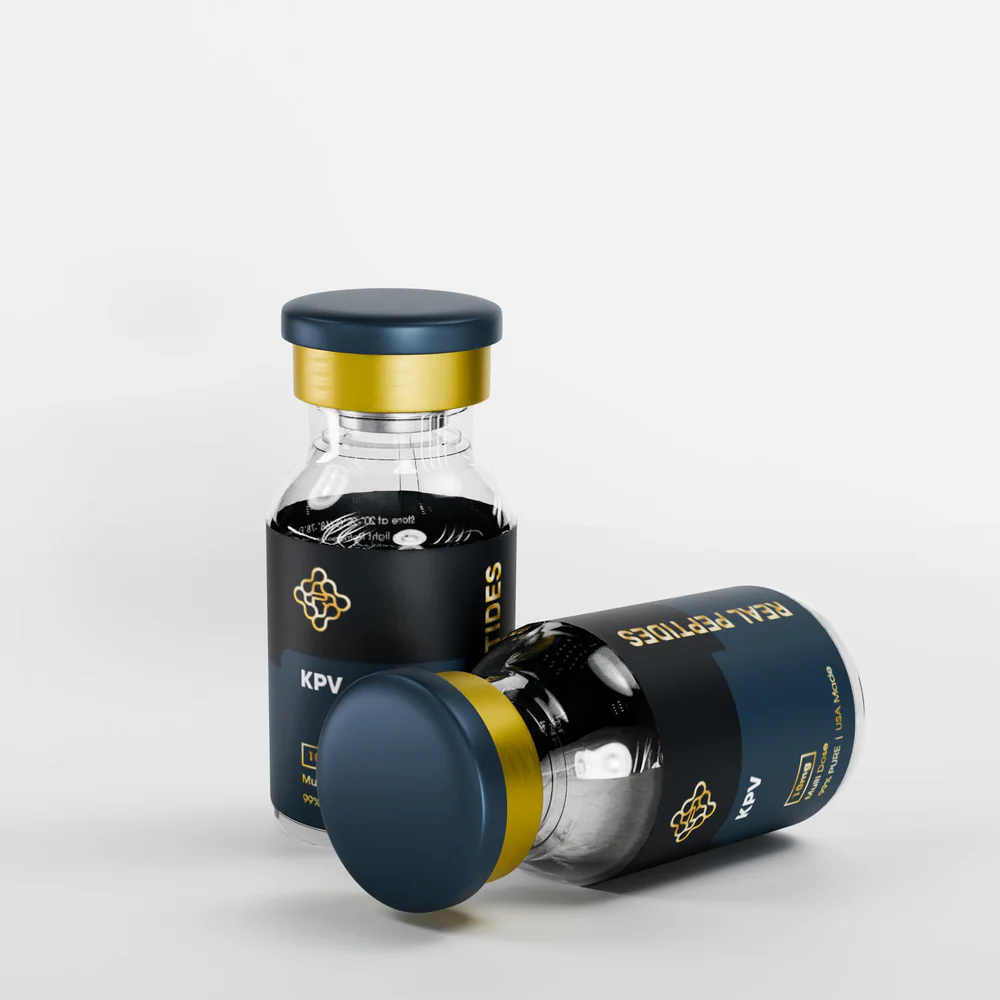
Unlike broad-spectrum anti-inflammatory agents, KPV peptide acts through a specific Lys-Pro-Val sequence to simultaneously modulate immune and epithelial cell functions. Its dual capacity to induce antioxidant enzymes, suppress pro-inflammatory mediators, and accelerate barrier repair in ex vivo explants makes KPV a uniquely versatile reagent for integrated skin, neural, and vascular inflammation research.
A tripeptide (Lys-Pro-Val) used to study anti-inflammatory and wound-healing pathways in preclinical models.
Benefits include cytokine modulation (↓ IL-1β, TNF-α), accelerated cell migration, and improved barrier recovery.
Commonly in scratch assays, macrophage-cytokine tests, ex vivo skin explants, and neural-glial inflammation models.
In vitro studies range from 100 nM to 10 µM; in vivo rodent assays often use 0.1–1 mg/kg.
As a research reagent, KPV shows no systemic side effects but must be handled under lab-safety protocols.
Yes—often co-studied with BPC-157, GHK-Cu, or TB-4 to explore synergistic tissue-repair and anti-inflammation effects.
No—KPV is strictly for research use only and not approved for human or veterinary application.
Real Peptides offers USA-manufactured, ISO-certified KPV peptide at ≥ 99% purity and low endotoxin—available for research use only.
Don't hestitate to contact us

End of Content.